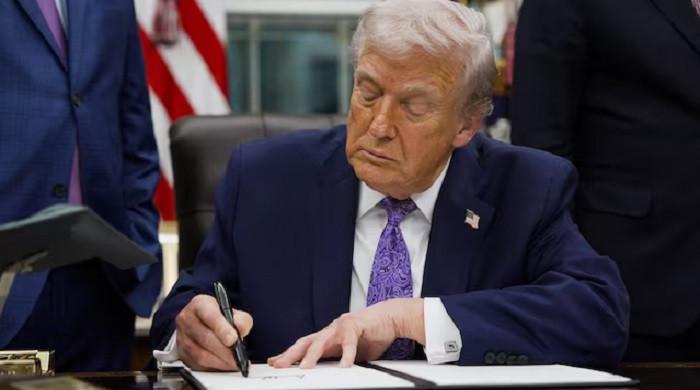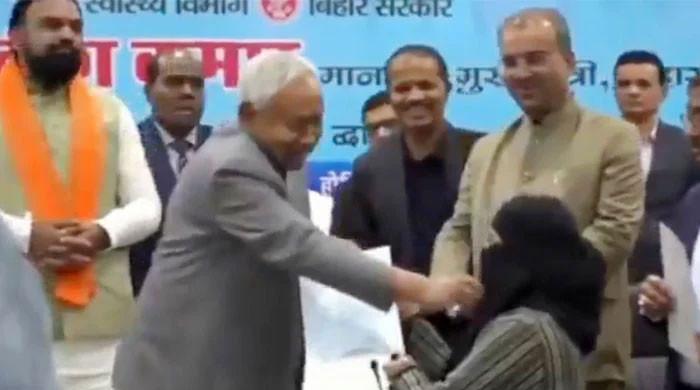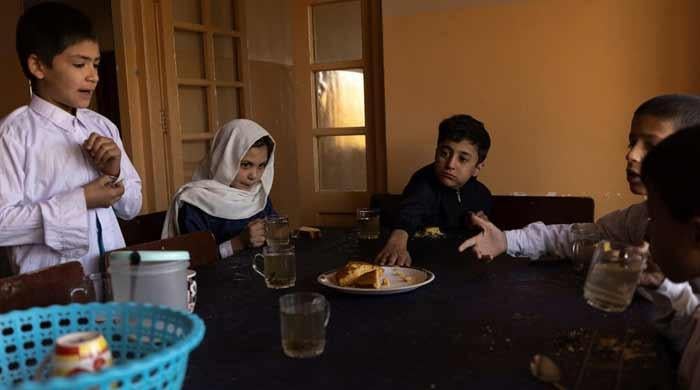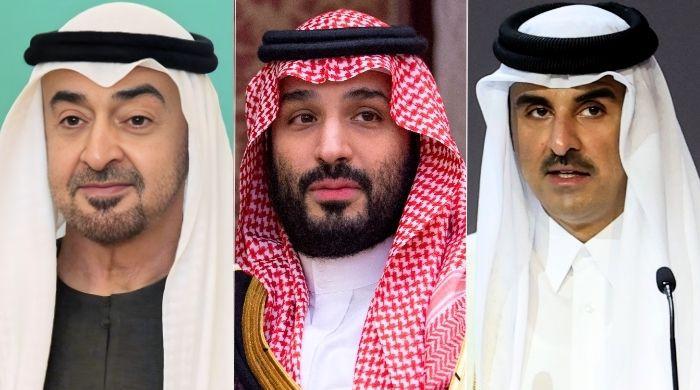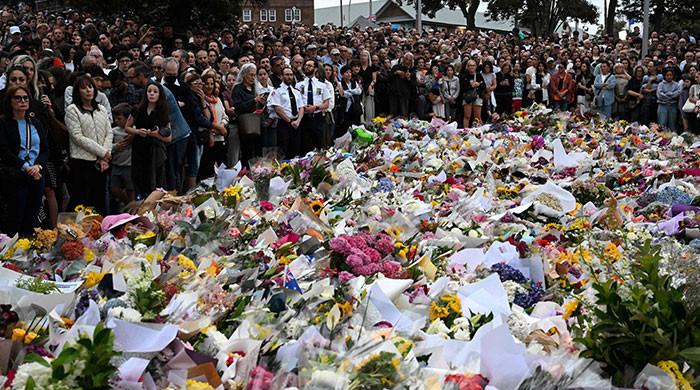FM Qureshi to embark on diplomatic mission to Brussels
Visit will mark foreign minister's first visit to EU capital after signing Strategic Engagement Plan agreement in 2019
December 04, 2021
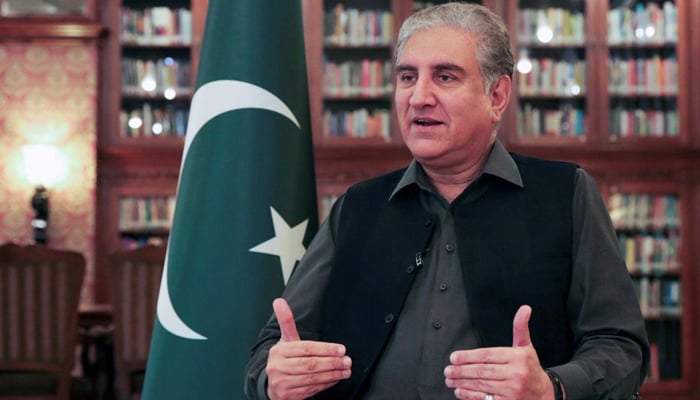
- The visit will mark foreign minister's first visit to the EU capital after signing the agreement in June 2019.
- Qureshi along with EU foreign policy chief Joseph Borrell will discuss Pakistan’ foreign policy regional issues.
- Prior to the strategic dialogue, the agenda of the meeting was decided during a political dialogue held on December 3.
BRUSSELS: Foreign Minister Shah Mahmood Qureshi is expected to arrive in Brussels on Monday, December 6, for the seventh round of the strategic engagement plan (SEP).
The visit will mark the foreign minister's first visit to the European Union (EU) capital after signing the agreement in 2019.
Qureshi, along with EU foreign policy chief Joseph Borrell, will discuss Pakistan’s foreign policy and regional issues, particularly Pakistan's role in Afghanistan.
The two officials will also discuss the terms and conditions related to trade concessions granted to Pakistan under the Generalised Scheme of Preferences Plus (GSP+) and human rights.
Qureshi's visit is a part of the SEP which was signed between the two sides in June 2019. Under the agreement, the foreign minister of Pakistan and the EU's high representative for security and foreign affairs would meet twice a year to exchange views on Pakistan’s progress in the field of human rights, developmental issues, regional peace. The yearly strategic engagement dialogue requires the submission of Pakistan’s progress report on the implementation of the terms of the SEP agreement keeping in view the continuous and emerging issues.
Prior to the strategic dialogue, the agenda of the meeting was decided during a political dialogue held on December 3 via a video conference.
A statement issued by the European Union in this regard said that Pakistan foreign secretaries discussed the full range of issues pertaining to their bilateral relationship, as well as a number of foreign policy issues, including regional security and stability, in the meeting.
"They agreed on the importance of making further progress with the implementation of the EU–Pakistan SEP," the statement read, adding that in this context, both partners expressed their strong commitment to hold the first meeting of the EU-Pakistan Security Dialogue in early 2022.
During the dialogue, other topics discussed included cooperation on counter-terrorism, especially action against money laundering and terrorist financing, Pakistan’s progress towards the implementation of its action plan developed with the Financial Action Task Force (FATF) and migration and mobility.
"Pakistan’s initiative of introducing new legislation on human rights issues relevant for the international conventions linked to the GSP+ unilateral trade preferences was also discussed," the EU said.
EU asks about steps taken to counter extremism
However, the EU raised concerns regarding "cases of torture, enforced disappearances, access to justice, the misuse of the blasphemy law, freedom of expression and media freedom, as well as freedom of religion and belief".
According to the statement, the EU inquired about steps taken by the government of Pakistan to counter extremist forces promoting hatred and intolerance, creating harm to society and putting a strain on Pakistan’s international relations.
Need to provide urgent humanitarian aid to Afghanistan
Both sides also exchanged views on regional and international foreign policy issues, in particular the situation in Afghanistan. They agreed on the need to provide "urgent and unhindered humanitarian assistance and to ensure the provision of basic social services directly to the population".
It further mentioned that the two sides also emphasised the critical importance of an inclusive government, to enhance the prospects of stability and reconciliation in Afghanistan.
The political dialogue was co-chaired by the Deputy Secretary-General for Political Affairs of the European External Action Service (EEAS), Enrique Mora, and Pakistan’s Foreign Secretary Ambassador Sohail Mahmood.
Qureshi's visit to Brussels on Monday is taking place at a time when Pakistan is facing enormous difficulties with the European Union due to non-compliance with GSP+ conventions.
It is pertinent to mention here that Pakistan’s relations with France are at the lowest level which is another impediment for Pakistan to have good relations with the EU because bilateral relations with the member states of the European Union hold importance.




